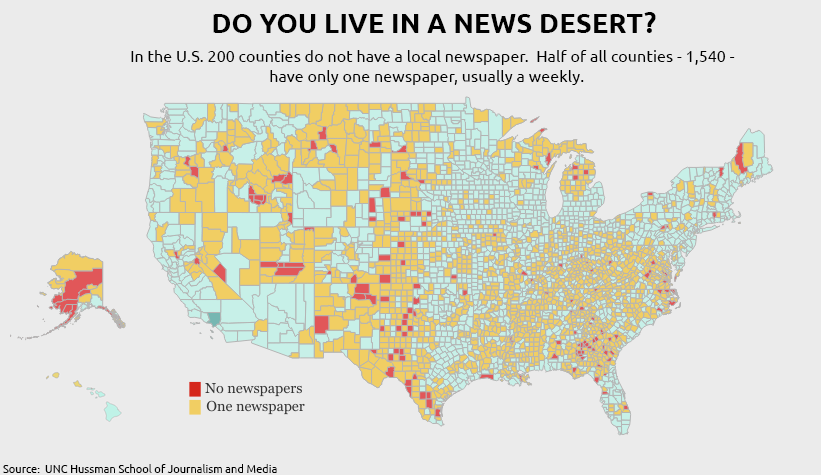Finding water in a news desert: Preparing for elections when news coverage is scarce
The News Literacy Project April 24 panel includes (left to right) Alana Rocha, editor of the Rural News Network; Benjamin Hamm, director of the University of Kentucky’s Institute for Rural Journalism and Community Issues; and Brianna Lennon, county clerk for Boone County, Missouri.
When local news coverage is scarce, how do you find out what’s on the ballot in your community? As legacy news sources struggle – especially in rural areas – information becomes harder to find, and it can feel especially fraught as we prepare to vote. Meanwhile, pink-slime news outfits, which masquerade as local news sources but are funded by political partisans, and social media rumor mills are popping up to fill the void left by downsized or shuttered local news outlets.
Even with these challenges there are still ways you can be informed about ballot initiatives and candidates running for office – including reports on their spending and where they stand on the issues.
The News Literacy Project has invited three experts – Benjamin Hamm, director of the University of Kentucky’s Institute for Rural Journalism and Community Issues; Alana Rocha, editor of the Rural News Network; and Brianna Lennon, county clerk for Boone County, Missouri and co-host of the podcast "High Turnout Wide Margins" – to walk us through how people living in news deserts can prepare to vote in 2024. We’ll talk about obstacles to finding credible information, as well as tools you can use to investigate the who, what, when, where, why and how of the 2024 elections.
EVENT DETAILS
Finding water in a news desert: Preparing for elections when news coverage is scarce
Wednesday, April 24
3 p.m. MST
Online only • No charge


